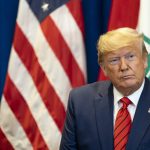The Drug Enforcement Administration has hit the brakes on its cash-seizing antics at airports after a razor-sharp report from the Justice Department’s Inspector General, Michael Horowitz, laid bare some seriously troubling practices. Apparently, targeting travelers for cash grabs wasn’t just a bad idea—it might have been downright discriminatory. The DEA even had the audacity to pay airline employees to help them identify “suspicious” individuals, offering these informants a slice of the pie when cash was seized.
Following Horowitz’s scathing evaluation, the Biden administration decided to put the program on hold as of November 12. The Deputy Attorney General, Lisa Monaco, indicated that the alleged misconduct warranted a full reevaluation before anyone would be allowed to continue any “consensual encounters.” This means the happy-go-lucky cash snatching spree has effectively come to a grinding halt, at least until the bureaucratic wheels turn and it gets a thorough scrub.
Civil liberty advocates, whose voices often drowned in a sea of government incompetence, finally found some ammunition to back their long-held beliefs about the DEA’s penchant for bullying innocent travelers. For years, complaints flooded in about agents haunting airports, demanding to rummage through bags based on flimsy suspicions. Even when agents found no drugs, the DEA could still seize cash deemed “suspect,” sending passengers into a legal nightmare just to reclaim their own money.
Horowitz’s report seemed to underline the obvious—those operating the program weren’t just misfiring; they were wildly off-target. He highlighted a laundry list of critical issues, including a complete lack of oversight and policy guidelines. This negligence risked not only the rights of innocent travelers but also the integrity of the DEA’s own asset forfeiture operations, which might be more effective if they didn’t spend their time shaking down law-abiding citizens.
The Inspector General peeled back the layers on a particularly sordid tale involving the DEA’s confidential informants, specifically how an airline employee played a central role in targeting unwitting travelers. Reports surfaced of one individual earning kickbacks for providing lists of those making last-minute travel purchases. This employee raked in tens of thousands of dollars over the years—all while the DEA’s record-keeping was so shoddy that it was impossible to pinpoint exactly how many innocent folks were swept up in these dubious searches.
The Drug Enforcement Administration paused its practice of seizing cash from airline travelers after an inspector general delivered a scorching denunciation of the program. https://t.co/RWCZA4Ep5v
— The Washington Times (@WashTimes) November 21, 2024
One telling incident involved a traveler who became an unwitting star of the viral video circuit. When confronted by a DEA agent demanding to search his bag, he quickly found himself in a struggle to assert his rights. After refusing consent, he was told he could either stay behind and endure an invasive search or fly to his destination without his belongings. Spoiler alert: he missed his flight, and agents still found no cash or drugs. This sort of dramatic overreach offers a timeless reminder of what happens when government agents believe they can operate without checks and balances; personal rights take a back seat to misguided authority.
Even after the scathing report, the Justice Department claimed they were already looking into the program prior to Horowitz’s bombshell. This begs the question: if the concerns were already on the table, why did it take a public outcry to push for accountability? As this spectacle unfolds, one thing is clear—the days of casually extinguishing taxpayer rights in the name of “fighting crime” might just be coming to an end.




